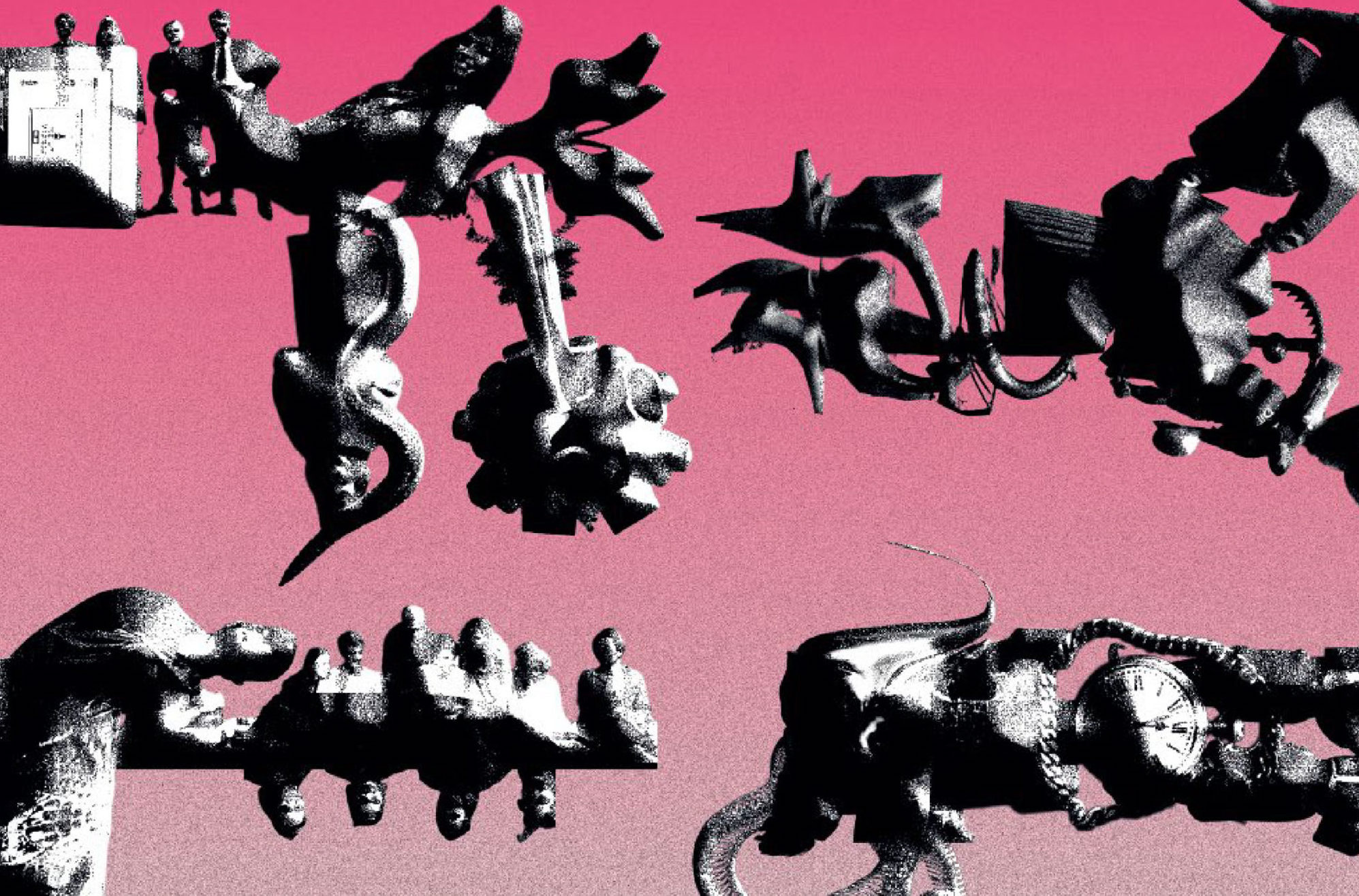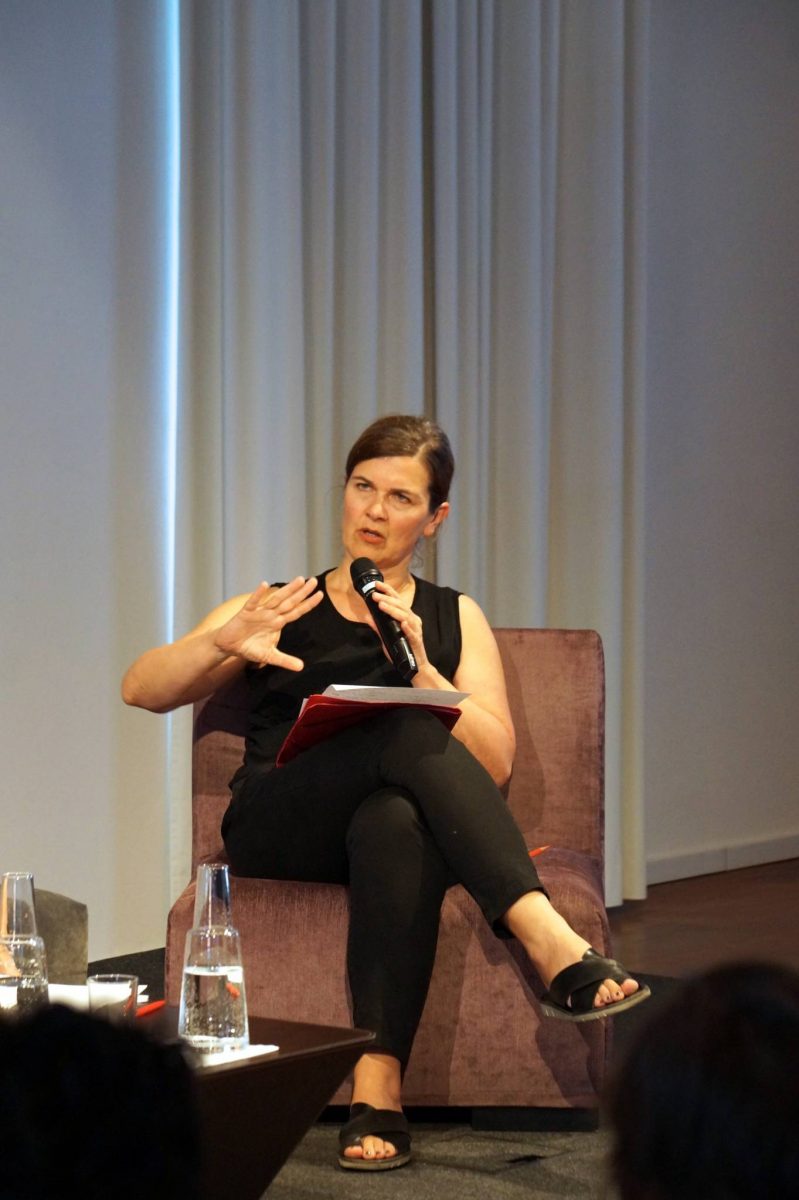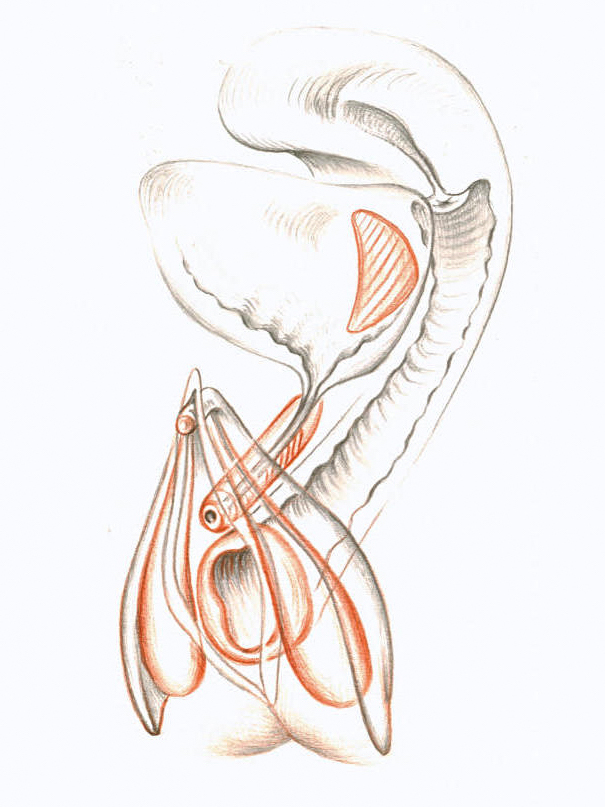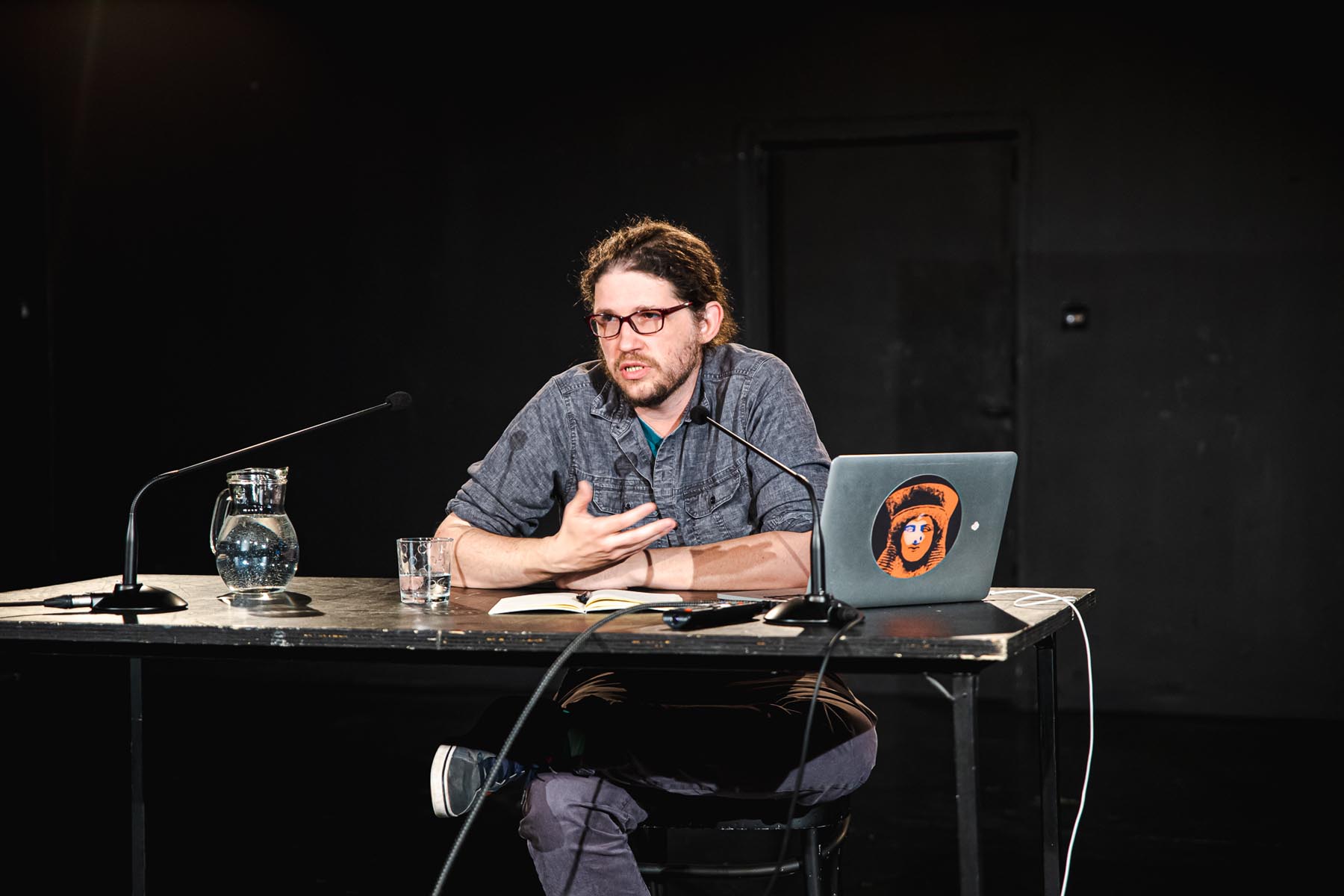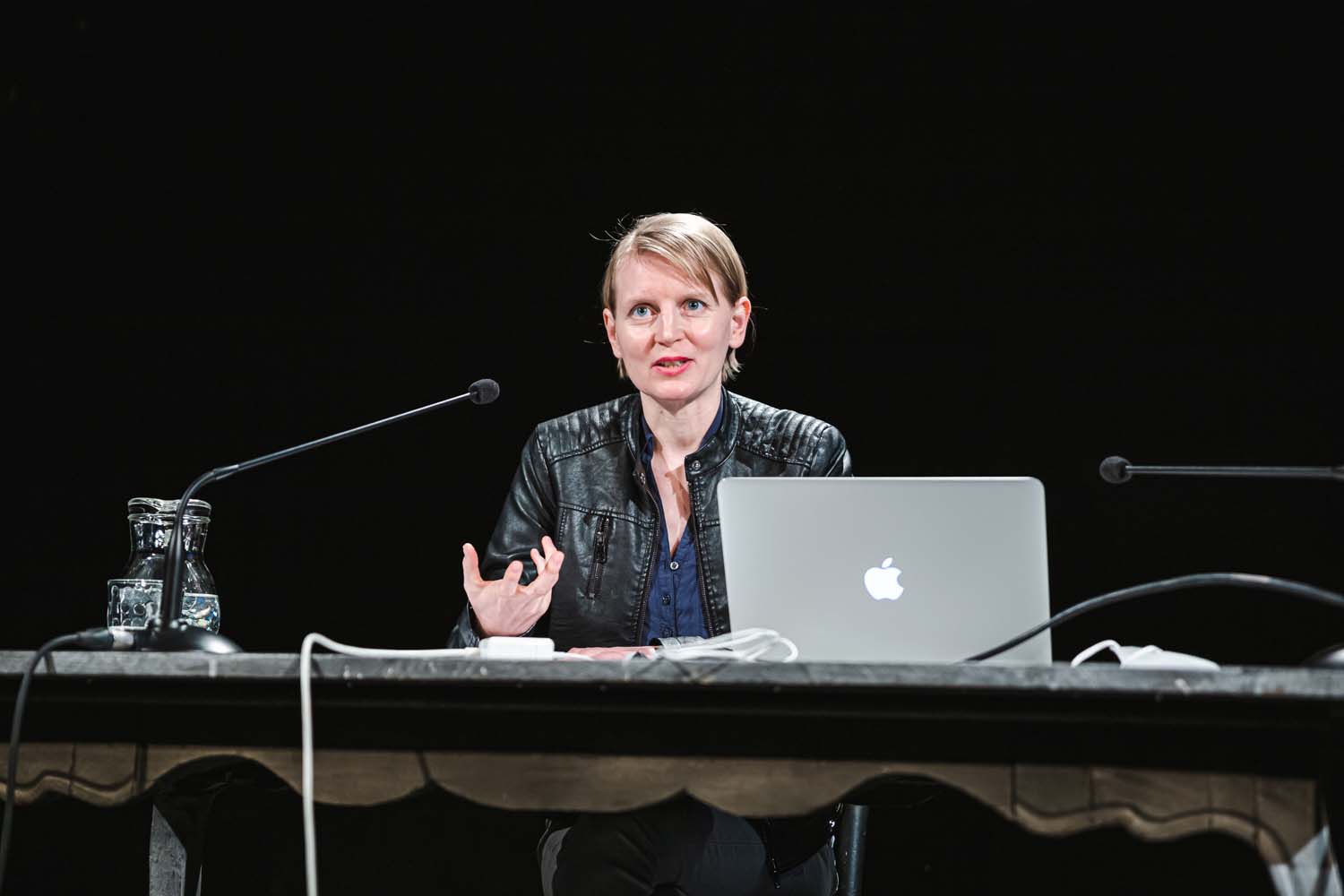Reparative Research
Reparative Research marks the beginning of a collaborative programme and experimental research process led by Kurziv/Kulturpunkt (Zagreb), Maska (Ljubljana) and Krytyka Polityczna (Warsaw), all participants are members of the “Repair” research teams. The project will develop “repair methods” – creative research methods that use a combination of research/theoretical and cultural-artistic tools to examine and build the potential of culture and art for social repair.
The idea of reparativeness, from which the programme is derived, follows the concept of “reparative critique” by theorist Eva Kosofsky Sedgwick, used in the humanities to describe forms of thinking and types of reactions that do not follow predetermined approaches or existing frameworks. In contrast to paranoid approaches, reparative approaches approach their object without writing or prior meditation, not analysing it from a distance, but thinking alongside it or with it, allowing unexpected outcomes to emerge from the relationship of proximity and attention.
A series of online conversations
► 18. 4. 2023, 18.00
► 11. 4. 2023, 16.30
► 4. 4. 2023, 18.00
Reparative research is part of the project TESTING GROUND: Reparative practices for a new cultural ecosystem.
Reparative Research: Feminist Pathways
- ONLINE CONVERSATION, 18.4.2023, 16.30 CET
Reparative Research: Feminist Pathways is the third in a series of online conversations dedicated to finding cultural responses that could help to remedy today’s political and ecological crisis. Can we agree that the ways and conditions in which we want to work follow a certain kind of ethic of care that advocates different ways of relating, often linked to feminist orientations? By ‘feminist’ we mean a kind of situatedness that can see biases in normative ways of working processes and other social situations where the main goal is (re)productivity. Can feminism offer us a tool to repair the damaged social fabric? The conversation will be moderated by editor and cultural worker Pia Brezavšček (Slovenia) and will be moderated by researchers, artists and cultural practitioners Tjaša Črnigoj (Slovenia), Nina Gojić (Croatia) and Pola Salicka (Poland). The conversation will be in English via Zoom.
The event is organised by the Maska Institute.
Nina Gojić is a dramaturg from Zagreb, mainly working with dance and devised theatre. She writes texts for and about performance and likes to think about writing as performance. She also writes letters. In collaborative contexts she develops exploratory, process-oriented formats and curiosities.
Pola Salicka is a designer and cultural producer based in Warsaw. She moves between forests, swamps, gardens, materials, installations, objects, workshops and art direction. Trained in industrial design, she keeps it as a point of reference while exploring how working with matter could attract the good of multi-human communities. She advocates a deeper level of cooperation between human beings and all other beings, represented by radical ecological thinking and the politics of care, including in our social relations. It also practises this way of working in its engagement, especially in collective work, for example as part of the Zakole group.
Tjaša Črnigoj studied theatre directing and philosophy and comparative literature and is trained in psychodrama therapy. She works mainly in theatre directing, with a particular interest in documentary theatre. In this genre, she directed the play Babice (Grandmothers) (Reka ECC 2020) with the collective Igralke, Savez udruga Molekula and KUD Transformator, which was invited to several stages in Slovenia and Croatia, as well as to the Theatertreffen-Stückemarkt 2022 platform in Berlin. In 2021 she initiated the transdisciplinary laboratory Through the Eyes of Others. She organised the laboratory The City of Love as part of her residency at the Cité Internationale des Arts in Paris. In 2022 she received the “On the Ground” grant for promising artists and cultural workers at the Wiener Festwochen 2022. In the 2022/2023 season she is leading a series of lecture-performances on the topic of sexual pleasure as a fundamental sexual right in the framework of human rights Sex Education II (Maska, Mladinsko Theatre, City of Women).
Reparative Research: More-Than-Human Potentials
- ONLINE CONVERSATION, 11.4.2023, 18.00 CET
Reparative Research: More-than-Human Potentials is the second in a series of online conversations dedicated to the search for answers that culture can offer for recovery from the current political and environmental crisis. The conversation will focus on the possibilities of superhuman relations and collaborations, i.e. the potential of such artistic and research approaches that seek to question established hierarchies between species and phenomena on Earth. More-than-human cooperation includes non-human beings, plants, fungi, meteorological phenomena and bodies of water. Such relationships and collaborations require us to step out of our own positions, to listen to different spatial and temporal scales, and to step into the unpredictable and the unknown. To be aware of and nurture such relationships, it is necessary to develop new languages, knowledge and practices. The talk Reparative Explorations: More-than-human potentials will explore how looking beyond the human domain and into the more-than-human can have a reparative effect on today’s crisis. The panel will include biologist and visual artist Krysia Jedrzejewska-Szmek (Poland), visual artist and researcher Ana Kuzmanić (Croatia), and dramaturg and art researcher Tery Žeželj (Slovenia). The programme will be moderated by Olga Roszkowska (Poland), an education expert and artist with a focus on climate issues.
The event is organised by Krytyka Polityczna.
Krystyna Jędrzejewska-Szmek is a visual artist and biologist based in Poland. She graduated in Media Art and Photography in Warsaw and Poznan, and Biology in Warsaw and worked for years at the Botanical Garden of the University of Warsaw. Her interest focuses on the complex web of interrelationships and tensions between humans and the world, which is made up of creatures that are more than human. She is a member of the ZAKOLE group and co-author of the art book Tropicale, which explores the link between botany and colonialism.
Ana Kuzmanić is a Croatian artist whose practice is based on research and collaboration. Her work actively problematises everyday life, examining tensions between the individual and the social, politics and poetics, and seeking potentials for change. Using a wide range of media such as public interventions, sound installations, artists’ books, print media, performance and video, her work is often site and time specific. In addition to her own practice, she collaborates with the international art collective Eastern Surf and is an associate professor at the University of Split.
Tery Žeželj is a Slovenian dramaturg, artistic researcher, author and editor with a focus on feminist environmental practices. She has recently started researching multi-species landscapes at the Bunker Institute on the possibilities of reconceptualising the relationship with the environment, focusing on the multiplicity and diversity of intertwined and interdependent bodies that co-construct landscapes.
Reparative research: The Search for Joy
- ONLINE CONVERSATION, 4.4.2023, 18.00 CET
Reparative Research: The Search for Joy is the first in a series of online conversations aimed at finding cultural responses that can act reparatively to today’s political and ecological crises. The conversation will explore the potentials of the search for joy as a cornerstone of research processes. Specifically, we will consider the potentials of joyful and playful responses to political despondency and ecological mourning, the feelings that arise from a sense of hopelessness and powerlessness about the state of politics and society, and an awareness of current and anticipated ecological losses. The panellists Una Bauer (Croatia), Klara Otorepec (Slovenia) and Ola Knychalska (Poland) will shed light on artistic, cultural and social practices that, through the search for pleasure and joy, act as a reparation of the frictions and uncertainties that surround us. The event will be held in English via Zoom. It will be moderated by editor, researcher and cultural worker Hana Sirovica (Croatia).
The online event is organised by Kurziv/Kulturpunkt.
Una Bauer is a Zagreb-based theatre researcher, critic, and professor at the Department of Dramaturgy at the Academy of Dramatic Arts. Her recent research focuses on affect and emotion, grief, mourning and death in the context of the performing arts.
Ola Knychalska is a project leader, curator and researcher. Through her work in various initiatives in Warsaw (including Pomada Queer Festival and Kem Foundation), she focuses on collective organising and empowerment of queerfeminist and anti-fascist discourses. She has extensive knowledge and experience in queerfeminist arts and cultural and educational programmes focused on climate issues.
Klara Otorepec is a radio journalist, publicist and communications manager, also trained in social pedagogy. She is a member of the editorial board of two programmes on Radio Študent. In collaboration with Katja Čičigoj, she started a seminar on reading classic feminist literature. She works on a wide range of issues related to precarisation, migration, economic sustainability, women’s rights and urbanism.

Funded by the European Union. Views and opinions expressed are however those of the author(s) only and do not necessarily reflect those of the European Union or the European Education and Culture Executive Agency (EACEA). Neither the European Union nor EACEA can be held responsible for them.


